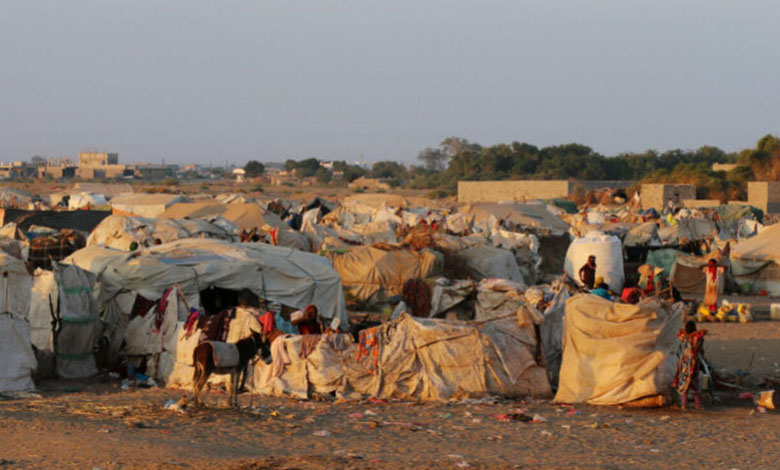Yemen: Houthi will not succeed in peace without setbacks

The Yemeni government believes that the Houthis cannot be forced to change their positions and return to the peace talks without achieving battlefield victories, especially as the group has expressed its refusal to return to the truce, in what appears to be a response to Iranian instructions. The European Union has called on the rebels to abandon what it called “extremist positions” and engage constructively with the efforts of the United Nations to resolve the crisis in Yemen.
The government was excluded during a cabinet meeting Monday in the southern port city of Aden, the official news agency Saba reported. the possibility of reaching a political solution to the conflict with the pro-Iran group without changing the facts on the ground,” he said, referring to the ongoing battles between the two sides, especially in Marib province, which has witnessed large-scale military operations that led to deaths on both sides and civilians, in addition to the escalation of attacks on oil ports and oil tankers.
The council discussed “the continuation of attacks and threats by the Houthi terrorist militia against the capabilities of the Yemeni people, international shipping (i.e. oil ports) and their repeated attacks on civilians”.
The attacks are “a continuation of the terrorist behavior of the Houthi militia in blocking all peace efforts and dispelling any illusion that a solution is possible without changing the facts on the ground”, he said.
During the meeting, Prime Minister Maeen Abdulmalik said, “The government will do whatever is necessary to deter Houthi terrorist attacks on oil exports.”
“This is about the livelihood of the Yemeni people and their national resources, and we cannot tolerate that or accept half-measures,” he said.
On 2 October, a six-month truce expired, with the government and the Houthis accusing each other of responsibility for its lack of renewal and the UN making efforts.
Since the failure of the truce extension, the Houthi group launched attacks on three oil ports, al-Dabba, Al-Nashima, and Qena, in the governorates of Hadhramaut and Shabwah (East), in order to prevent oil exports. This has aroused local, regional, and international condemnation. Observers believe that the Houthis’ focus on targeting oil supplies comes in response to Iranian instructions, especially since the government in Tehran is living under internal pressure, due to protests or external pressures, as a result of the intensification of Western sanctions.
In a statement posted to its Twitter account by the French embassy in Yemen, the EU reaffirmed “its commitment in principle to the unity, sovereignty, independence and territorial integrity of Yemen, and its full support to UN Special Envoy Hans Grundberg in his mediation efforts”.
He urged the Houthis to “abandon extremist positions and engage constructively with the UN envoy.”
“Restoring the truce and responding to humanitarian needs are of paramount importance in supporting the Yemeni people,” he said.
He praised “the constructive approach taken by the Yemeni government during the truce, and the continuous efforts made by regional parties, especially Saudi Arabia and Oman, to extend the truce,” according to the statement.
Calling the humanitarian situation in Yemen “catastrophic,” the EU said more than 70 percent of the population was in need of humanitarian assistance and more than half the population faced “severe food insecurity”.
Yemen has been ravaged by eight years of war between forces loyal to the legitimate government, backed by a Saudi-led Arab military coalition, and the Iran-backed Houthis, who have been in control of provinces including Sana’a since September 2014.
As of the end of 2021, the war had left 377,000 people dead and cost Yemen’s economy $126 billion in one of the world’s worst humanitarian and economic crises, according to the UN.












